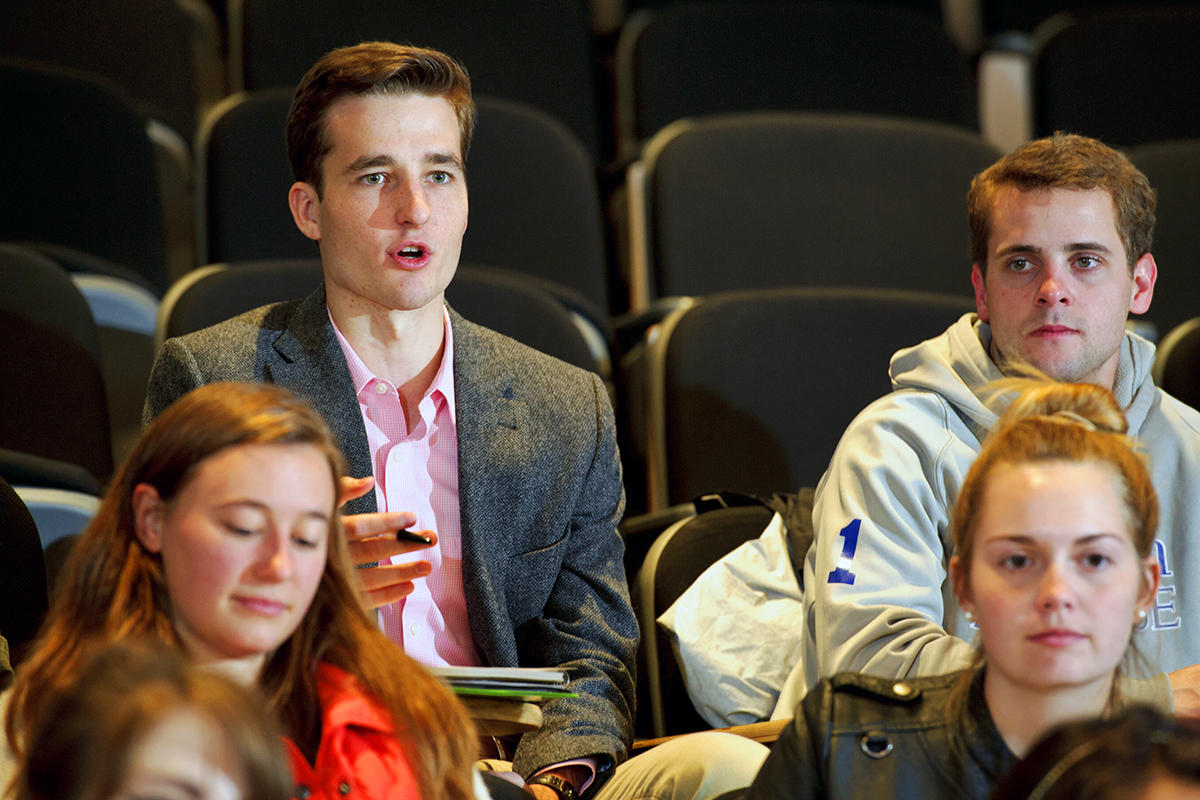
Students in “U.S. Foreign Policy,” taught by Assistant Professor of Government Erica De Bruin, were granted a unique experience on Oct. 2 when three distinguished Foreign Service experts visited their class to field questions regarding U.S.-Russia relations and careers in the field.
Among the guests were Ambassador William Luers ’51, who served for over three decades with the Foreign Service, 13 years as the President of New York’s Metropolitan Museum of Art, and founded the Iran Project in 2002; Ambassador Thomas Pickering, who himself worked in the Foreign Service for more than 40 years, during which time he served as the U.S. ambassador to a half-dozen countries, before joining the board of directors for the American Iranian Council; and Dmitry Suslov, an expert on U.S.-Russia relations, who is currently the deputy director for research at the Council on Foreign and Defense Policy in Moscow.
The panel members agreed that although prospects for cooperation between Russia and the U.S. are, overall, bleak, there are several promising areas, such as arms control, international terrorism and pressing the frontiers in the arctic and space. Suslov stated that,“We are living in a globalized and interdependent world, and as superpowers [Russia and the U.S.] need to work on those issues; although working jointly may not be possible, we should at least both try not to undermine or clash with one another.”
Luers commented, saying, “Clearly there are a lot of practical problems as well as opportunities, but there’s another dimension and that’s that the narratives of the countries have grown so different since 1990.” The countries have “gone down different paths and any president will face resistance from Russia,” he continued. Suslov added that “[the relationship] will probably get worse after Obama leaves office.”
Pickering pointed to current events in Syria as an opportunity for cooperation, but also referred to crisis as “Putin’s second Ukraine.” Suslov expanded on this idea, stating that “The response to the Ukraine isn’t actually unexpected at all when you know how important it is for Russia to prevent the Ukraine from rallying against it, and Russia is now using Syria to establish a partnership with Europe and the US without having to address, or give an inch, on issues with the Ukraine.”
Luers stated that “Syria and the Ukraine are not part of a grand strategy,” but rather an opportunistic chance to “expand Russian nationalism and its sphere of influence.” Along similar lines, both Russia and the U.S. would be best served to avoid polarization of Pacific Asia and prevent China from strengthening its influence in the region, Suslov pointed out.
